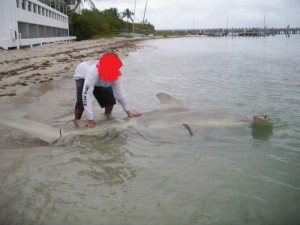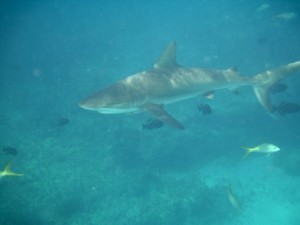After years of scientists and conservationists complaining about problems with common land-based shark fishing practices, the Florida Fish and Wildlife Conservation Commission is finally taking action! At their April meeting, FWC formally announced that they are considering revising regulations governing this activity with the goal of restricting the unnecessary and cruel handling practices that result in killing protected species of sharks.
(For background on this topic, please read my detailed open letter, or this summary of my research).
Here are the options that FWC is considering.

How can you help? Either physically attend a workshop or send a formal comment online!
Read More “ACTION ALERT: Protect Florida sharks from harmful fishing practices” »



